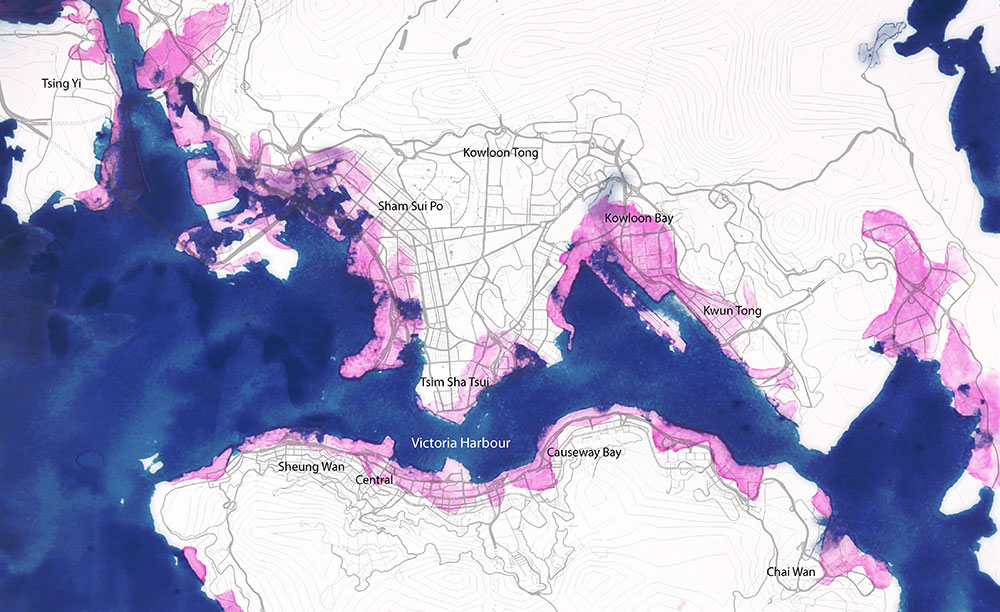The Research Methods Workshops allowed students to acquire key skills in developing and conducting empirical research. Supported by a series of interdisciplinary methodological lectures and landscape-focussed research talks, MLA students work in an interdisciplinary workshop setting alongside Architecture students and a dedicated lecturer. In 2023, five Research Method Workshops were offered to MLA students, offering a meaningful and ambitious range of methodological engagements from Science and Technology Studies, architectural anthropology, oceanic humanities, to mapping, oral histories and archival research.
Based in the oceanic humanities, Water Methods, led by Dr Huda Tayob, located seas, oceans, estuaries and rivers centre to methodological and epistemic questions, questioning “ways and means of representing and writing histories [and futures] of and with water,” through the multimedia works of designers, writers, activists and film-makers.
Students of Dr Kim Förster’s Architecture, Building Materials and Environmental Justice Mapping Ecological Conflicts along the Stages of Commodity Chains workshop, focussed on studying “architecture, building materials and their environmental impact and costs through the lens of political ecology and environmental justice” in a transdisciplinary environment.
The Campus Architecture: Tracing Multiplicity on Oxford Road workshop, led by Dr Benjamin Blackwell, focussed on architectural anthropology and was conceptualised to generate a “visual and analytic chronicle of the multiple practices found on the UoM and MMU campuses and the physical spaces they shape and are in turn shaped by... highlighting in particular the relational and multiple nature of urban life.”
Dr Kristóf Fatsar, in the New Towns and Nature-Like Open Spaces: A History of Ecological Urban Landscape Design workshop, offered students the opportunity to engage core historical research sources, and apply design-based analytical methods within the context of site-based analysis and archival research.
The workshop The Corridor: Deep Mapping of Oxford Road, Manchester, led by Kasia Nawratek engaged students with methods of topographical investigation that collate and prepare sources from histories, ecologies, poetics, memoires, amongst others for analysis, to “amplify the voices of marginalised stakeholders, both socially and ecologically.” (Springett, 2015)


